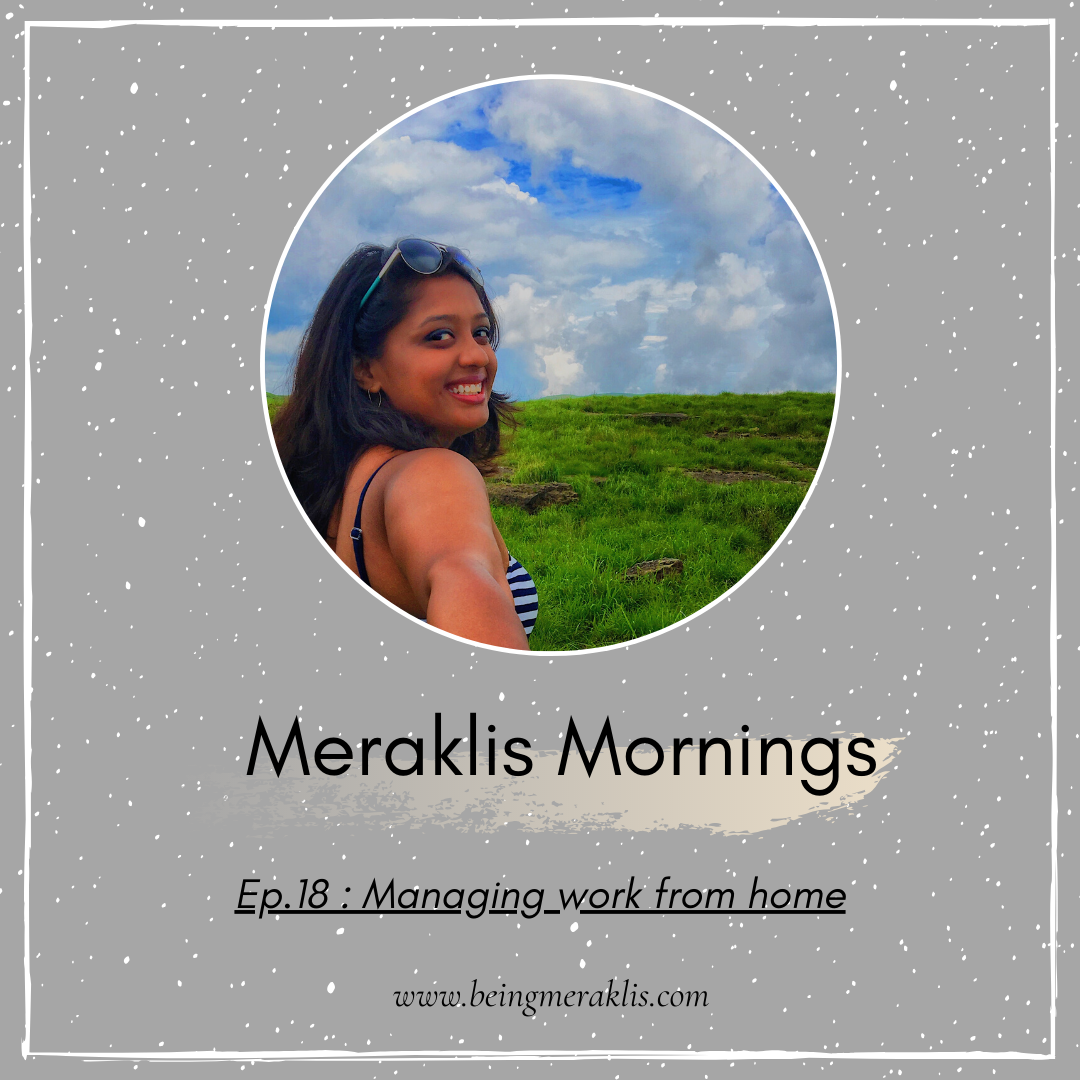
Ep 18 – Managing Work from Home
<

How do you usually start your week? Happy that it’s a brand-new week to crush your goals or annoyed that the weekend didn’t last long enough for you to reset. I’ve had both, even though I am more of the second type.
When ‘Work from home’ feels like ‘Work all day’
But now with corona, the weekdays and weekends blur into one with no distinction and nowhere to go. Work calls get scheduled at any time, any day of the week and you have no excuse to get out of it either. Even if you’re not working, a lot of your work is spread out across your home which means you are subconsciously working all the time.
I faced this when I first started my work almost a year and a half back. I worked from morning 7 to 9-10 pm in the night. I would barely get any sleep because I was planning my next day in my head when I stopped working. After all, there was so much to do and so little time. I didn’t take any weekends off for the same reason and I was on the job 24*7. And this went on for a good 2-3 months until I realized I had stopped being creative, my efficiency had reduced with every passing hour of being overworked and over-committed.
So how can you draw the boundaries in work from home and make it work?
1- Building a routine: As simple as it sounds, it is not easy to maintain it. But the results are profound when you manage to stick to a routine. Our body is trained to run on autopilot, 90% of what we do in a day is sub-conscious.
Think about it, do you make a choice for which hand to use your toothbrush with, which leg you insert in your jeans as soon as you pull it out of the closet, or which leg you use to balance yourself when you miss a step. You don’t, because all of this is a routine you have followed for years and hence your mind can run all of this on autopilot.
So build a routine for working from home. What time will you carve out to do your chores at home, what time will you finish your work, and what time will you allocate to spend time relaxing and unwinding, and follow it rigorously for a few weeks.
My routine is simple, I wake up at 5 am, do my meditation and mindfulness practice till 7-7.30, have breakfast + coffee, and get to work by 9 am. 3 hours of work, 12-2 personal chores – cooking, cleaning, and lunch. 2-5 I am back to work. 5-6 I work out, 6-7 I work again. And after 7, I dine, read, and rest.
Keep that cut-off for when you start work and when you stop and follow it diligently.
2- Have a designated space where you work. So that when you get there your body knows what to expect and will get to work mode quickly. This also ensures the sanctity of the remaining spaces in your house like your bedroom or living room. Carve out a space meant only for work so that the minute you get there, you focus on what needs to be done, and do it efficiently.
3- Learn to say NO: This was one of my biggest lessons I learned. When I started working from home, I said yes to everything, projects that paid little or nothing, projects that were pure grunt work, projects that gave me no learning or satisfaction. All of this leads to over-commitment and kills your productivity and drive in the long run. So, say no to projects that do not inspire you.
Alternatively, if you are working with an organization and the work is getting too much on your plate, schedule a conversation with your boss, share with them how this is affecting you, and work out boundaries that get the job done without affecting your mental space.
Remember in life you will only get what you ask for.
If you keep mum about what bothers you, people assume you are okay with it and go ahead piling more on you because they assume you are okay with it. So if you are not, say so politely, and prioritize yourself.
If work-from-home is going to be the norm, we need to be much more disciplined in our lives and at workplaces to continue keeping at it with all our sanity intact.

